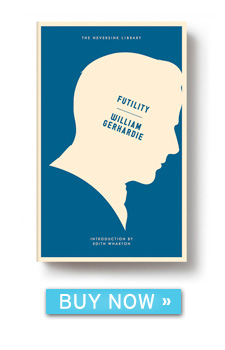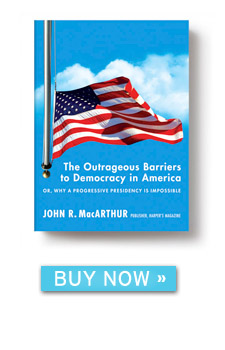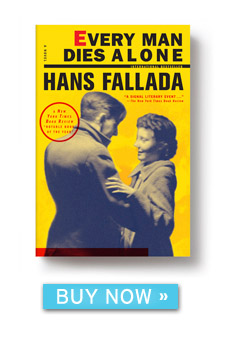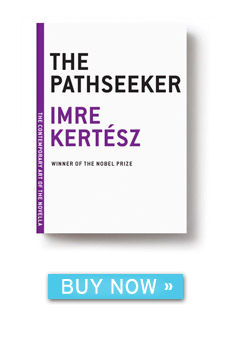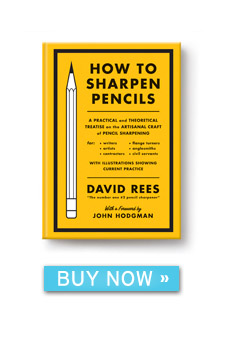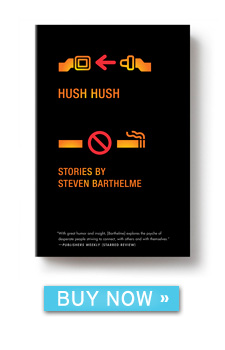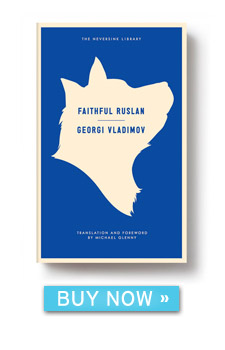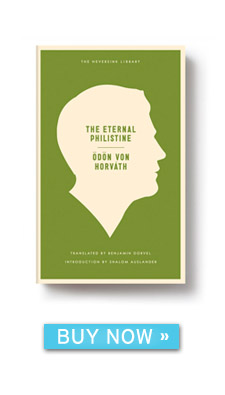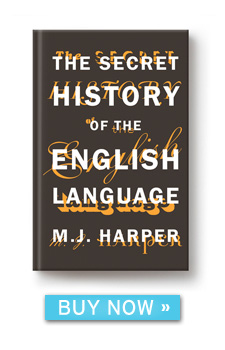December 11, 2012
Melville House holiday staff picks 2012
by Melville House

People always ask us for holiday recommendations from our list. Tough one! The beauty of working at an indie is that you don’t have to work on books you don’t get excited about. But we asked the staff to describe one title they had a particular fondness for. See the wildly varied results below. All are available now, by the way, and for a discount. But note that we can’t guarantee orders placed after December 17th will arrive in time for the holidays.
FUTILITY
by William Gerhardie
There’s a great deal to find irresistible about Futility. The cover, for one. Also, fulsome praise from the best of British curmudgeons, Evelyn Waugh, who said of Gerhardie, “I have talent, but he has genius.” Futility is a perfectly contained comedy, so subtle and satirical that it is only after you finish reading that you realize the author has managed to create a chilling portrait of Russia on the precipice of revolution. It’s the perfect book to turn to once you’ve gorged on Christmas dinner, and be happy that you’re not young and in love in St. Petersburg in 1917. — Ariel Bogle, publicist
THE OUTRAGEOUS BARRIERS TO DEMOCRACY IN AMERICA
by John R. MacArthur
You must have a politics buff in the family, no? If yes, press a copy of John R. MacArthur’s The Outrageous Barriers to Democracy in America into his or her hands. It’s an enlightening analysis of American politics, by the publisher of Harper’s Magazine. The book is just out in an updated edition that explains why Obama will never be the progressive so many of us hoped he’d become. It also gets at the real relationship between money and politics in this country. But it’s not all doom and gloom. MacArthur focuses on stories of activists who, despite the nastiness of the political system, fight for and win real change. And he considers reforms that might make our political system more humane and open to change. —Kelly Burdick, executive editor
THE HOLLYWOOD ECONOMIST
by Edward Jay Epstein
If I didn’t already have a copy of The Hollywood Economist on my desk, I would definitely be putting it on my own Christmas list. An in-depth look at how the film industry really makes its money, it’s full of entertaining anecdotes and examples that demonstrate just how convoluted show business can get. Edward Epstein’s incisive reporting pulls back the curtain on the Hollywood machine, letting us in on the secrets of how studios pick movies, the illusion of the Oscars, and the all-important question of how much it costs to insure Nicole Kidman’s knee. This one is perfect for the movie buff in your life. —Nick Davies, publicist
EVERY MAN DIES ALONE
by Hans Fallada
When I first read Hans Fallada’s Every Man Dies Alone (in a not-so-good translation by a die-hard fan who couldn’t believe it had been ignored for 60 years) I couldn’t believe it had been ignored for 60 years. On page 3 I broke out in publisher sweat — a medical condition that arises when you’re gripped by the fear that you won’t make a bid to acquire the rights of a book fast enough. (Who knows, maybe Penguin had been mulling it over for 60 years and was finally ready to spring!) The story of an ill-educated, middle-aged, working class couple in World War II Berlin who decide they’ve just got to stand up to the Nazis even though that’s, um, probably not going to turn out well, it was the most gripping and stirring thing I’ve ever read—part thriller, of course, but also an achingly beautiful love story. It’s impossible not to wonder, as you read it, what you would do if you had been in this situation. Also impossible, after you read it, not to pass it on to someone saying, “Sweet Jesus, you’ve got to read this. Really, you’ve got to.” —Dennis Johnson, co-publisher
DEBT
by David Graeber
I’m giving Debt to my brother for Christmas. It’s an essential book for a background on the anthropological history of debt, which made me rethink the various kind of debts most Americans encounter today—medical debt, student debt, and municipal debt. The book argues that a debt is a promise corrupted by mathematics and violence. David Graeber is a key activist in the Occupy movement, and this book gives context to the recent efforts of Occupy offshoot Strike Debt. I’m sure it will inspire family debates during the holidays as we prepare to go over the fiscal cliff. —Claire Kelley, director of library and academic marketing
THE DEVIL IN THE FLESH
by Raymond Radiguet
The Devil in the Flesh reminded me of reading The Sorrows of Young Werther as a teenager. Its evocation of adolescence is so vivid it could only have been written from close experience, and indeed, the book was published just before the author’s death in 1923 at age 20. Although it’s ostensibly a novel about sexual awakening, I was most struck by Raymond Radiguet’s powerful descriptions of love and loss: “Seasickness was the closest equivalent I could find to describe the dizzy fever in my heart and soul. Life without Marthe was an ocean crossing. Would I make it to the other side?” Give it to an angsty cousin or tragically romantic friend—or put on some Smiths and read it for yourself. —Christopher King, art director
THE PATHSEEKER
by Imre Kertész
Take a detective story. Take a quest story. Take the writing of enlightenment-era travelers — Goethe, maybe. Take Gide. Take Mann. Take something absurd, Gogolian. Take solipsism from Buchner, take fatalism from Yeats. Take these things, paste them in smeared newsprint on a wall that becomes a fence that becomes a field, until you are churning pages into the earth, and on each one scrawl the word Auschwitz, scrawl the word Stalin, until the words themselves lose all meaning and you cannot read what lies beneath and all is too-hot sun and inky old fingers. That is what it is like to read Kertész.
I say, unreservedly, that the man is one of the world’s great living writers. This, his novella The Pathseeker, is an incredible work, a brief book that could be pitted favorably against any of those tomes we call European Literature. I won’t try to summarize it other than to say that, like all great books, it is about disorientation and trains and memory. Please read it. —Dustin Kurtz, marketing manager
HOW TO SHARPEN PENCILS
by David Rees
David Rees’s bizarro chef d’ouevre on the art of sharpening a pencil is probably the funniest book we’ve ever done here at Melville House. Check out his chart on The Common Ages of Schoolchildren. If the holidays leave you desperate for something to laugh about, Rees is your man. And for that person who has everything? Trust me, they don’t have anything like this. —Valerie Merians, co-publisher
HUSH HUSH
by Steven Barthelme
For the seasoned short story reader, who has read everything from Chekhov and de Maupassant to Andre Dubus and Lorrie Moore, Hush Hush, by Steven Barthelme delights and surprises in ways that remind us why this form is so special, and why we fell in love with stories in the first place. Barthelme, who is director of the Center for Writers at the University of Southern Mississippi, pushes his tales forward briskly, in prose that is at once minimal and fully-loaded, with characters, for better or worse, whose failings, urges and occasional triumphs cut through pretense and leave us aching in solidarity. This is the short story collection to give one who’s read all the rest. —Kevin Murphy, digital media marketing manager
FAITHFUL RUSLAN
by Georgi Vladimov
Everybody loves a dog story, right? This holiday season give a brutal masterpiece, one that the Guardian called “one of the defining literary texts of the post-Stalin period” and the New York Times called “chilling” — oh, it’s cold alright. The author took 10 years to finish it — imagine a Flaubert of the gulags — and his reward was being kicked out of his country. Ruslan is a fanatically loyal dog used to guard prisoners in Stalin’s Siberian prison camps. Then Stalin dies, the prisoners are released, and Ruslan isn’t quite sure what to do with his newfound freedom. Let’s just say that he’s a very well-trained dog. Not-too-much-of-a-spoiler: like Old Yeller, like Sounder, like Marley — the dog dies. As my father liked to say, “I’ll give you something to cry about.” —Dan O’Connor, managing editor
SPURIOUS and DOGMA
by Lars Iyers
If ever there’s a moment to wallow in the beauty of an artfully executed insult, it’s during enforced family time. In Spurious and Dogma we meet Lars and his frenemy W., both academics, both desperate, both the eternal Max Brod to an absent Kafka. From a dubious point of superiority W. relentlessly baits fat, hopeless Lars through each of his misadventures — professional, personal, domestic — presumably drawing some barely perceptible sense of self-worth from the incessant bullying. Anyone with siblings will understand why this makes these books the perfect gift. They’re also to my mind the funniest books Melville House has ever published — and that’s saying something, did you see this? — and you’ll kill two birds with one stone: how’s about this for the lucky recipient’s next birthday gift? —Ellie Robins, editor
THE ETERNAL PHILISTINE
by Ödön von Horváth
While you’re reading this book, before you wrap it to give to someone you really, really like, you’re going to be saying to yourself, “Something this funny existed, and I never knew about it? A book this funny has been out there all these years while I was reading other books and no one dashed them from my hands and put this one there instead?” And then you’re going to think a little bit about giving it away, and whether you really want to do that. The tale of a used-car salesman who travels to the World’s Fair to find himself a rich wife, Ödön von Horváth’s first novel is a blistering satire of German society between the wars. Plus, it comes with a correspondingly hilarious introduction by Shalom Auslander. The perfect gift for friends, and anyone else you can borrow a book back from. —Sal Robinson, editor
THE SECRET HISTORY OF THE ENGLISH LANGUAGE
by M.J. Harper
The Secret History of the English Language by M.J. Harper, publishers Valerie and Dennis agree, is the most outrageous book on the Melville House backlist. Its premise — that English did not descend from Anglo-Saxon, and that the Romance languages did not descend from Latin — seems, on the face of it, to be not just factually inaccurate but, well, insane. But yet just see if, by the time you get to the end of this rip-snorting, hilarious, learned, take-no-prisoners polemic … you don’t think there’s something to it. Agree or disagree, it’s spell-binding. PS — It also has one of the coolest book covers we’ve done.
